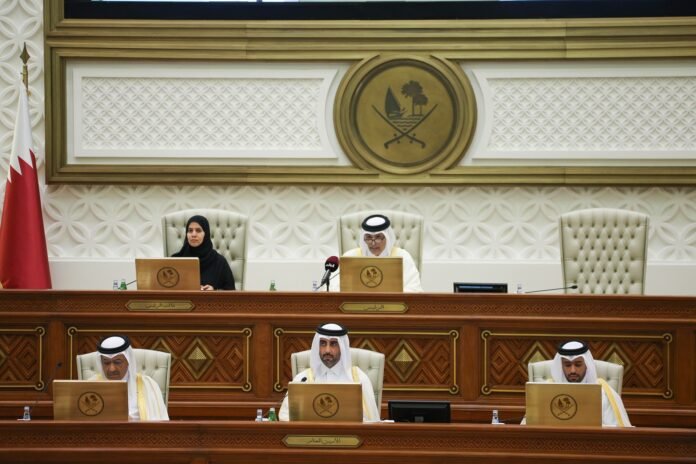In a significant step toward legislative reform for restorative justice, Bahrain’s Shura Council held its 24th session. The meeting took place during the third session of the sixth legislative term and was chaired by Speaker Ali bin Saleh Al Saleh.
To begin the session, members approved the minutes from the previous meetings. Immediately afterward, they reviewed the Foreign Affairs, Defense, and National Security Committee’s report. This report covered a draft law that amends several provisions of Law No. (18) of 2017. These changes follow Decree No. (96) of 2024 and aim to broaden the scope of alternative penalties.
Justice Minister Nawaf bin Mohammed Al-Ma’awda and Social Development Minister Osama bin Saleh Al-Alawi attended the session. Committee Rapporteur Ali Abdullah Al-Aradi explained the draft’s core objectives. He emphasized the law’s effort to assign a single authority to manage alternative penalties efficiently. Additionally, the law empowers the Minister of Interior to designate implementation locations.
Next, the Council addressed amendments to the Restorative Justice Law for Children, issued in Law No. (4) of 2021. Dr. Fatima Abdul Jabbar Al-Kooheji, Committee Rapporteur, outlined the law’s goals. She said the changes improve judicial procedures involving children and strengthen oversight of children’s rights.
The updated law gives the Child Protection Center more responsibility in child-related legal matters. The Ministry of Interior now gains authority to monitor and request adjustments to child-related sentences. Courts can also evaluate children’s progress during sentence execution.
Importantly, the amendments support legislative reform for restorative justice by encouraging rehabilitation over imprisonment. New penalties now include mental health care, internet restrictions, and scheduled security check-ins.
These updates aim to reduce custodial sentences and strengthen family bonds. According to Al-Kooheji, Bahrain leads the region in applying such progressive reforms. The law aligns with international human rights standards and modern justice practices.
By approving these amendments, Bahrain confirms its dedication to legislative reform for restorative justice. The country continues to modernize its legal framework while supporting social integration and legal balance.


